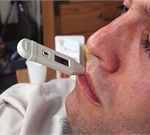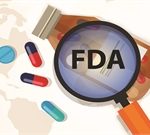
You went jogging and developed a cough. You did some yard work and now you’re wheezing. Maybe your throat is scratchy. Your first thought is: Do I have COVID-19? The U.S. Centers for Disease Control and Prevention has posted a new coronavirus self-checker on its website that might ease your mind and steer you toward any medical help you might need. The worst part about the coronavirus pandemic is the way the admittedly vague symptoms of the infectious disease plays tricks on your mind, experts say. “There’s a lot of symptoms here that are going to be nonspecific, as with any upper respiratory infection, and the fact is that many cases of coronavirus are very mild,” said Dr. Amesh Adalja, a senior scholar with the Johns Hopkins Center for Health Security in Baltimore. “You’re going to have people who don’t know what to do.” The CDC’s website has a tracker to help figure out if you have anything to worry about. The web tool first asks if you are ill or caring for someone who’s ill, and where you are located. It gathers basic information such as age and gender. The tracker then asks about a series of life-threatening symptoms, including some that aren’t at all related to COVID-19. These include gasping for air, blue-colored lips or face, severe pain or pressure in the chest,… read on >


















